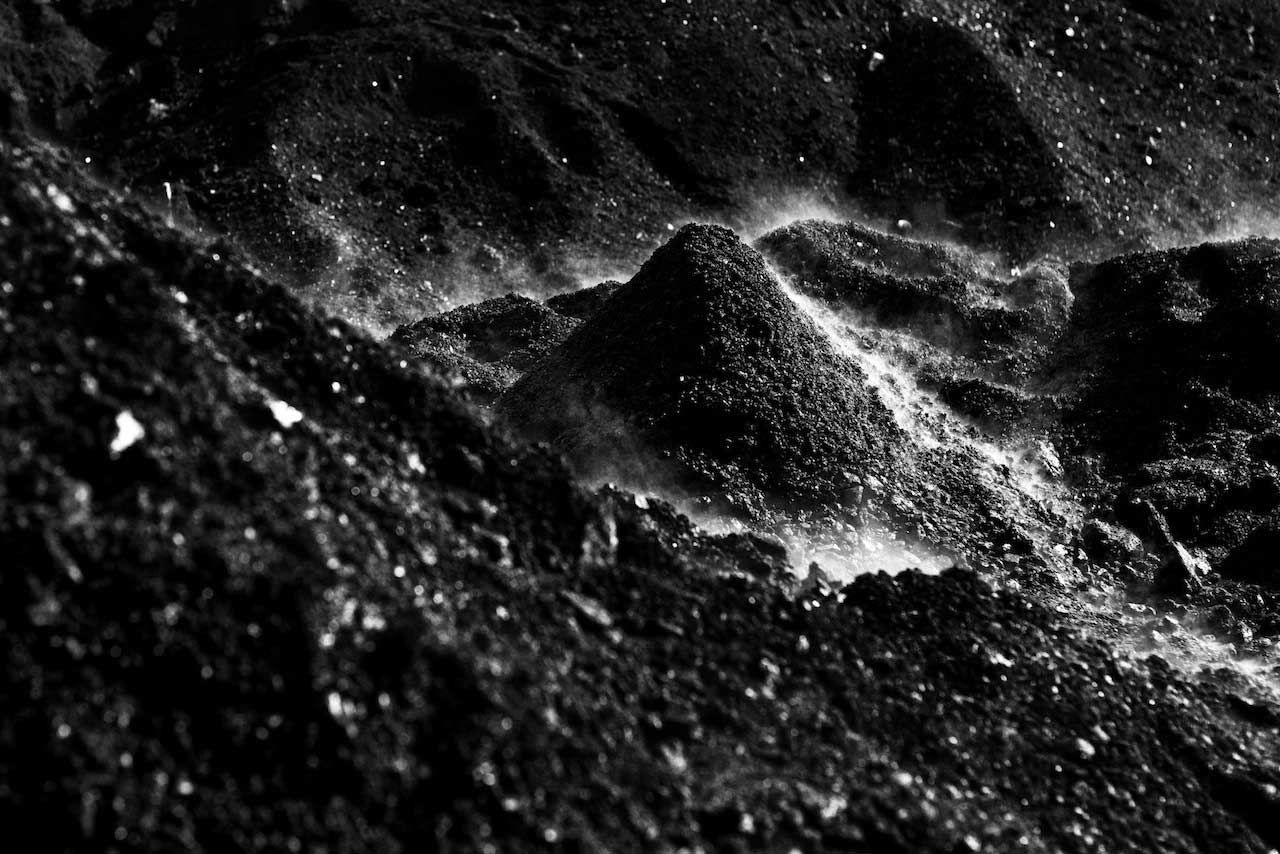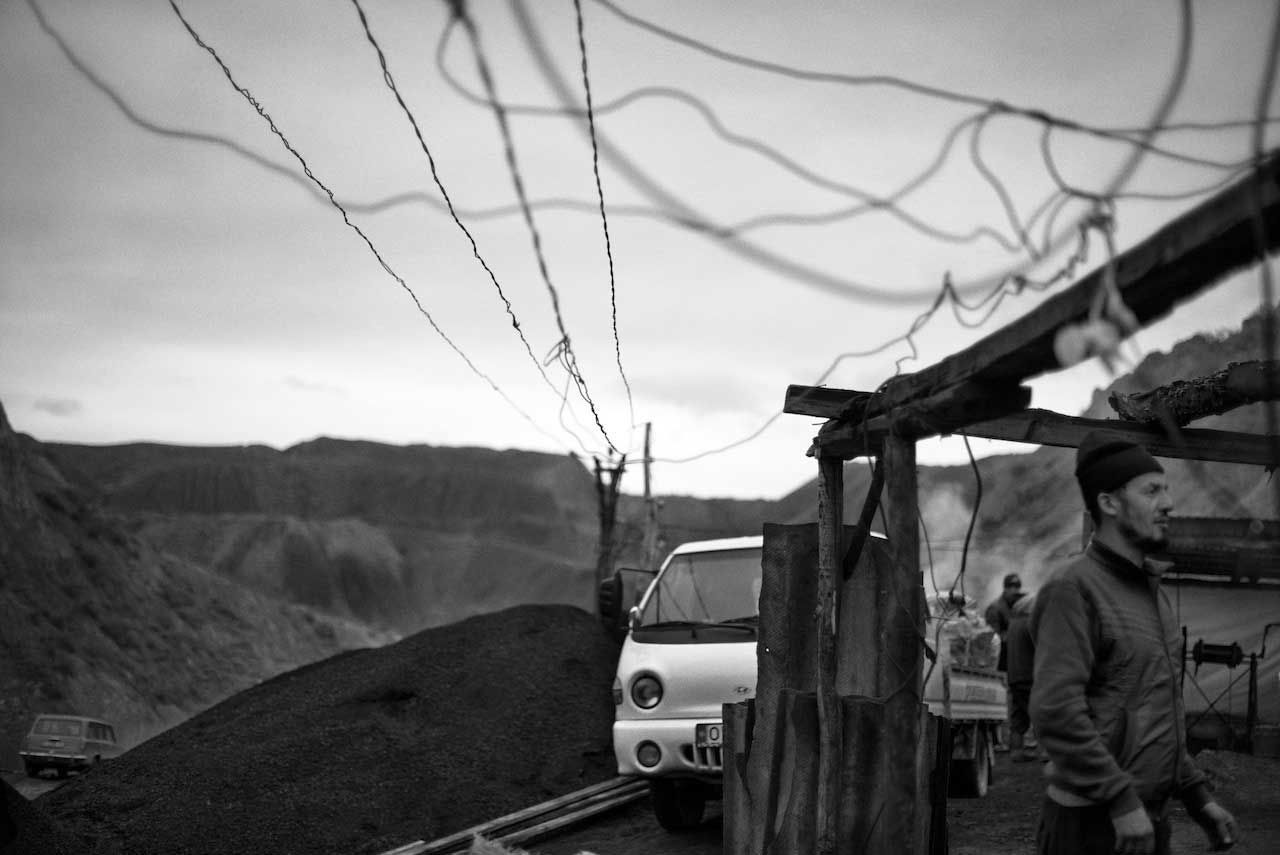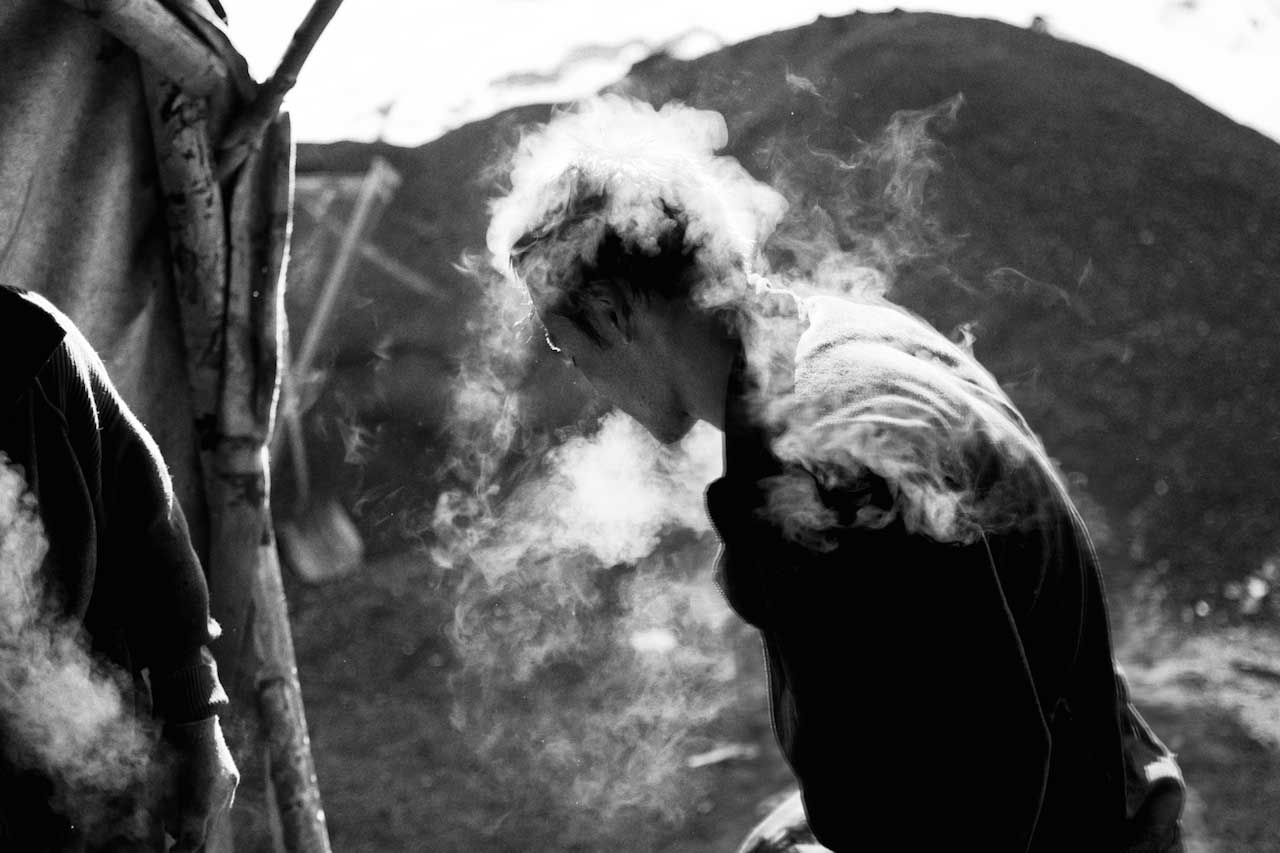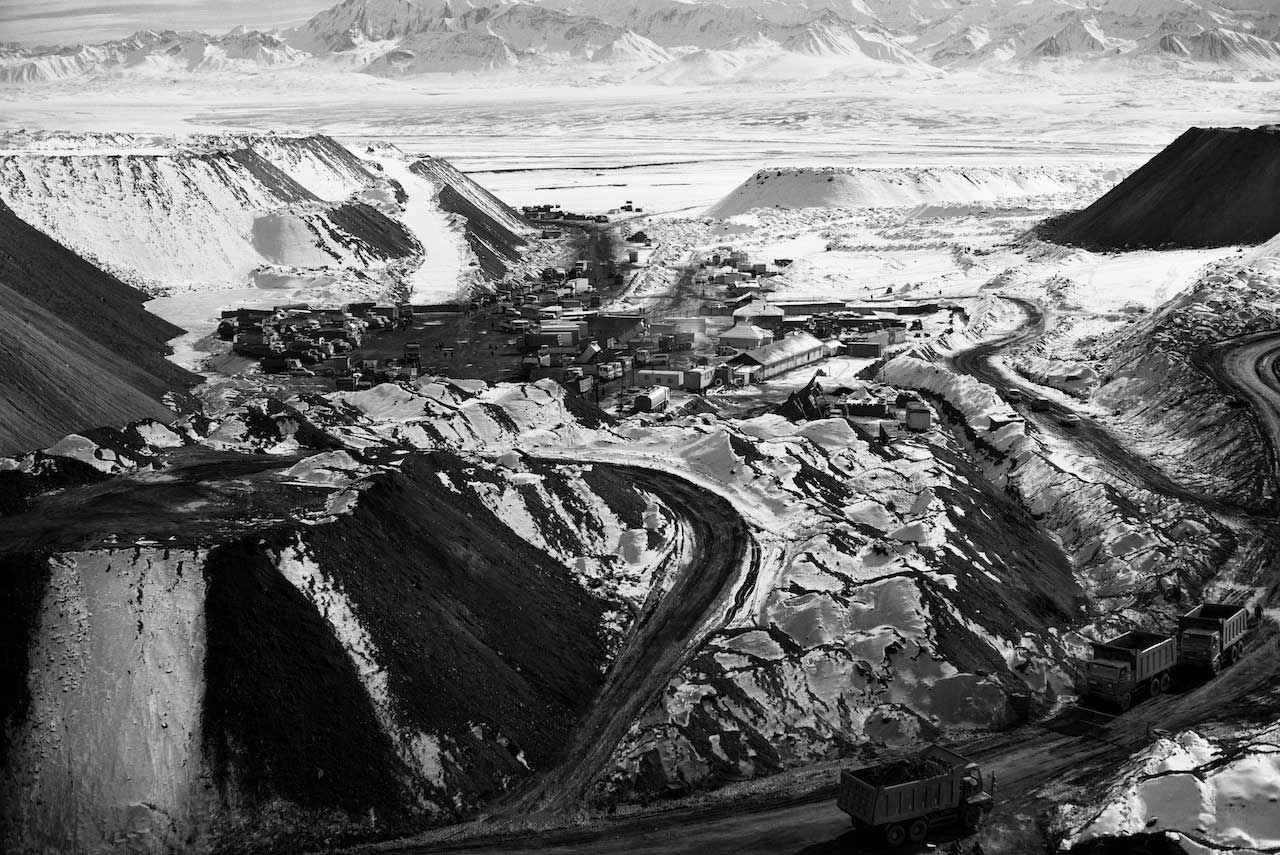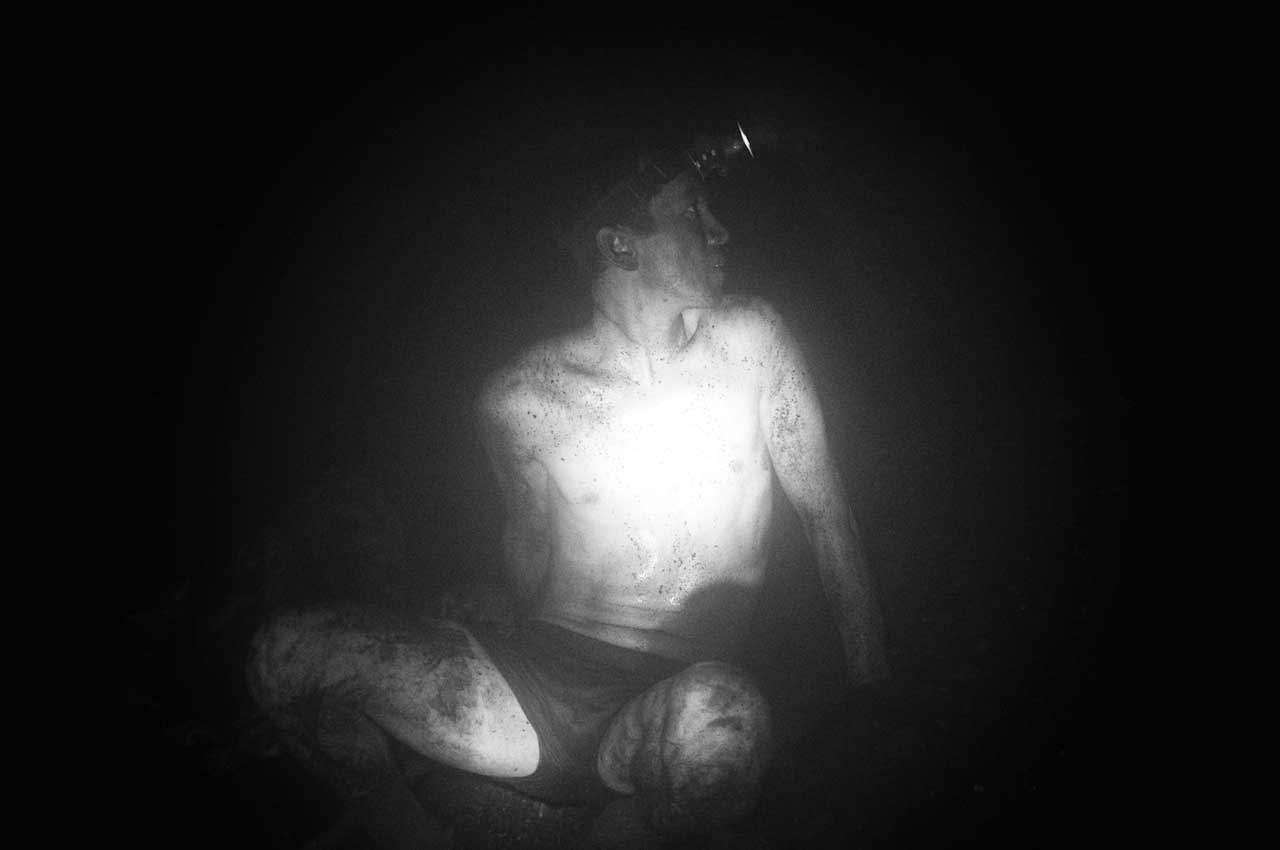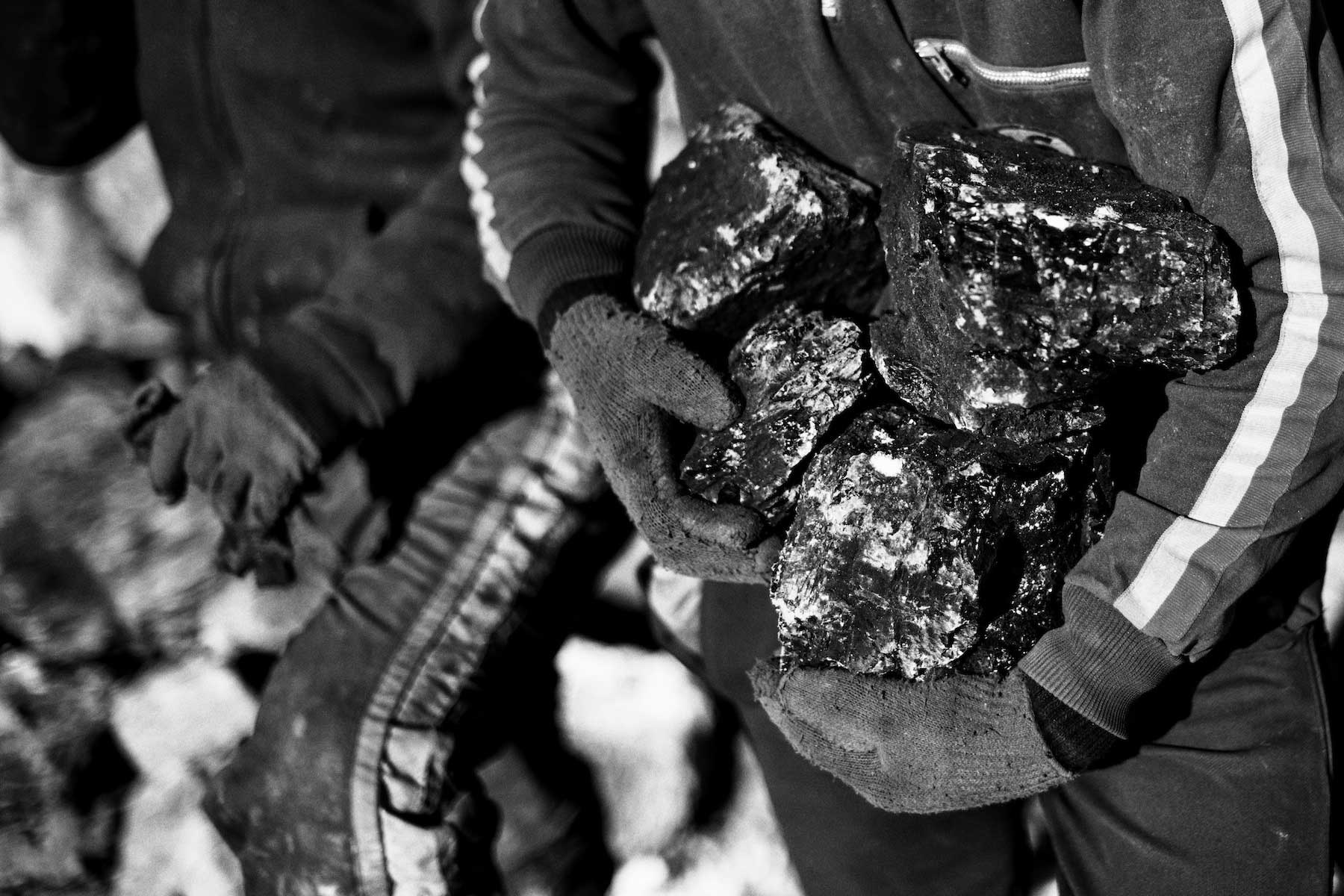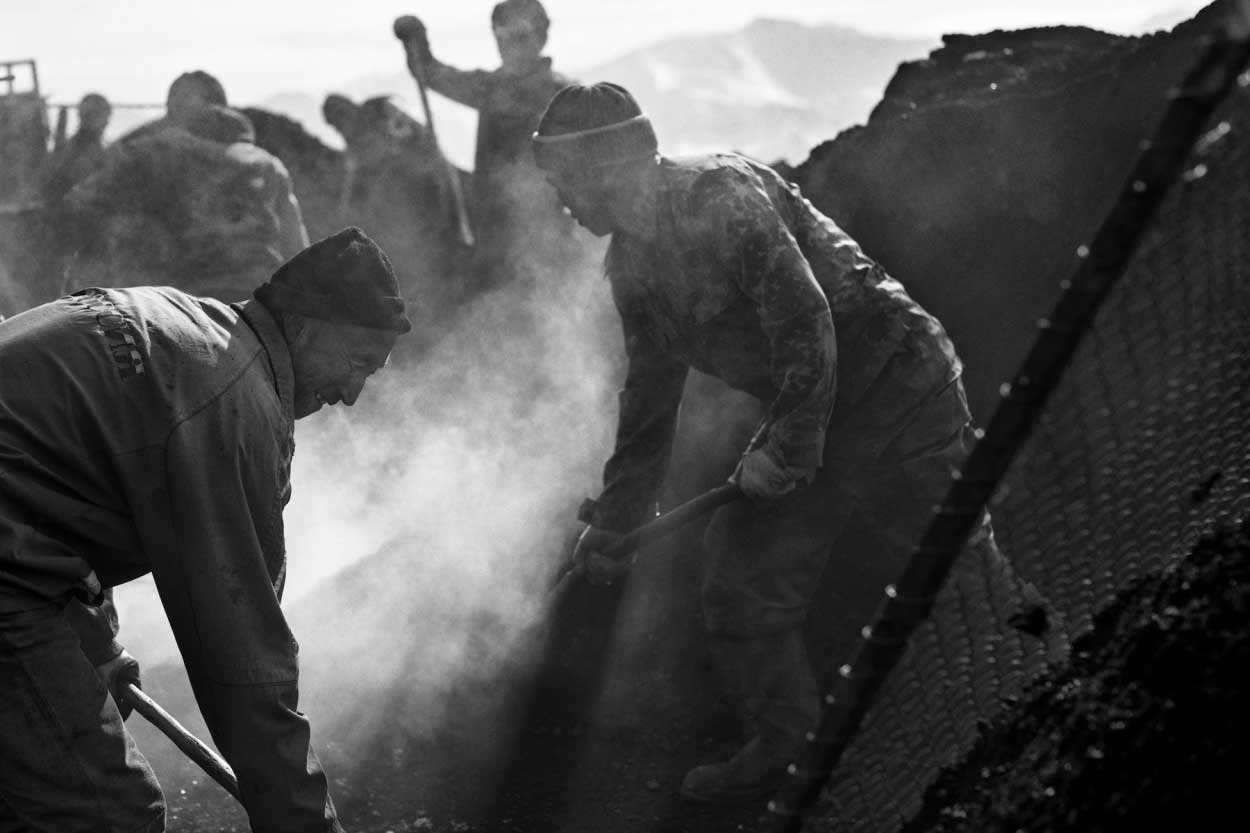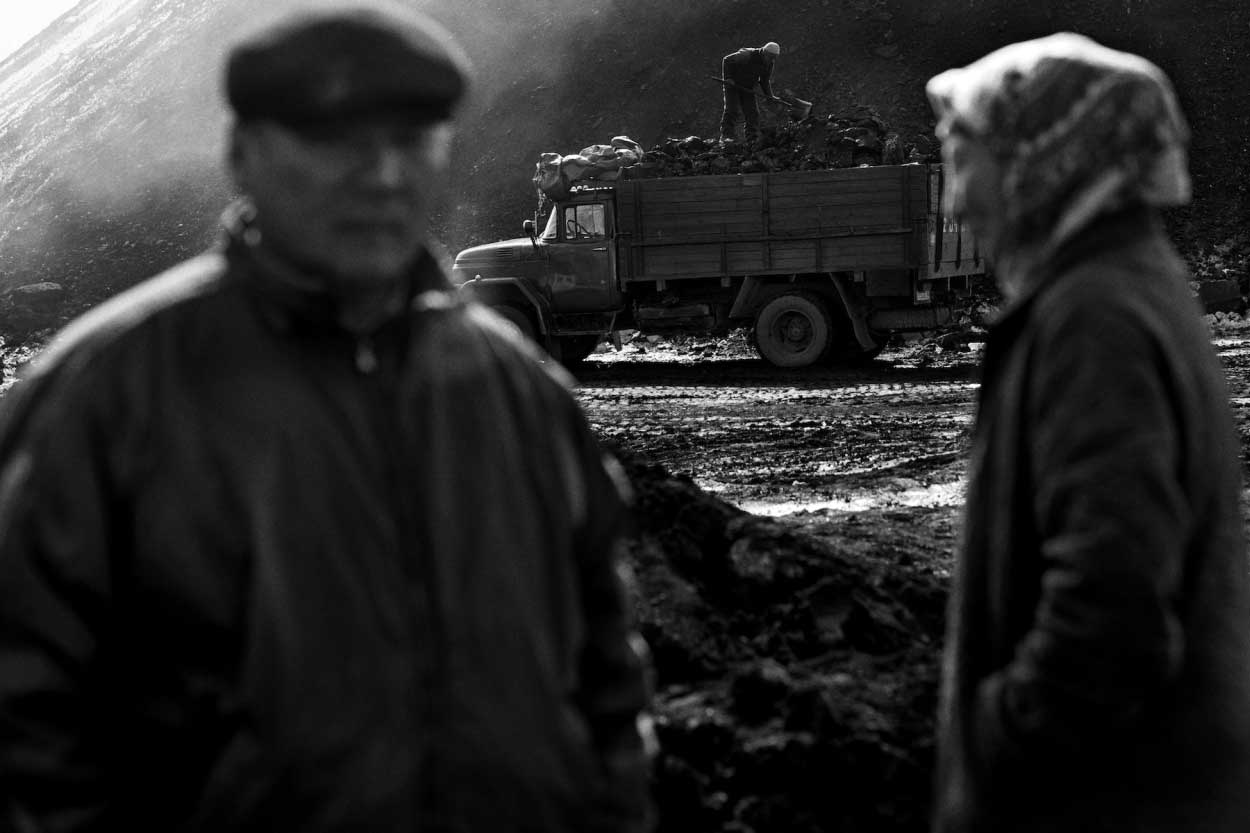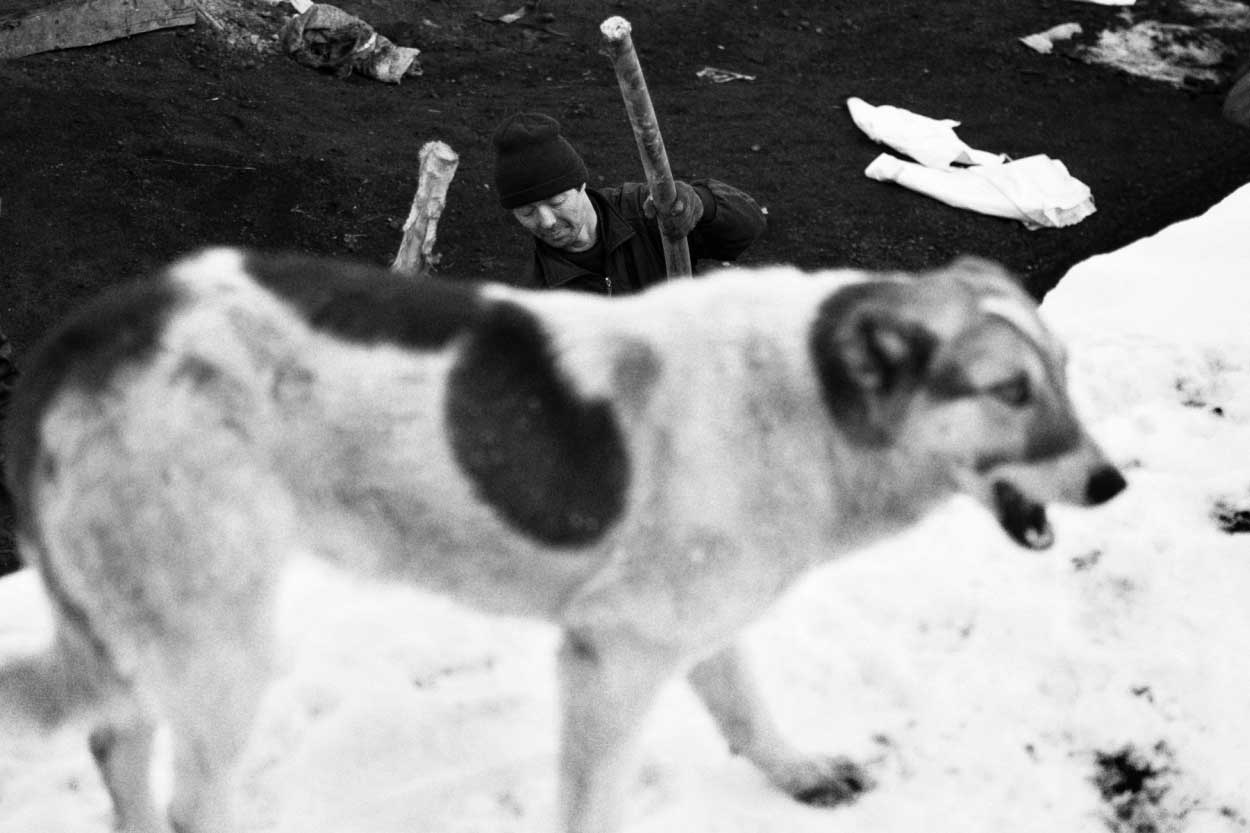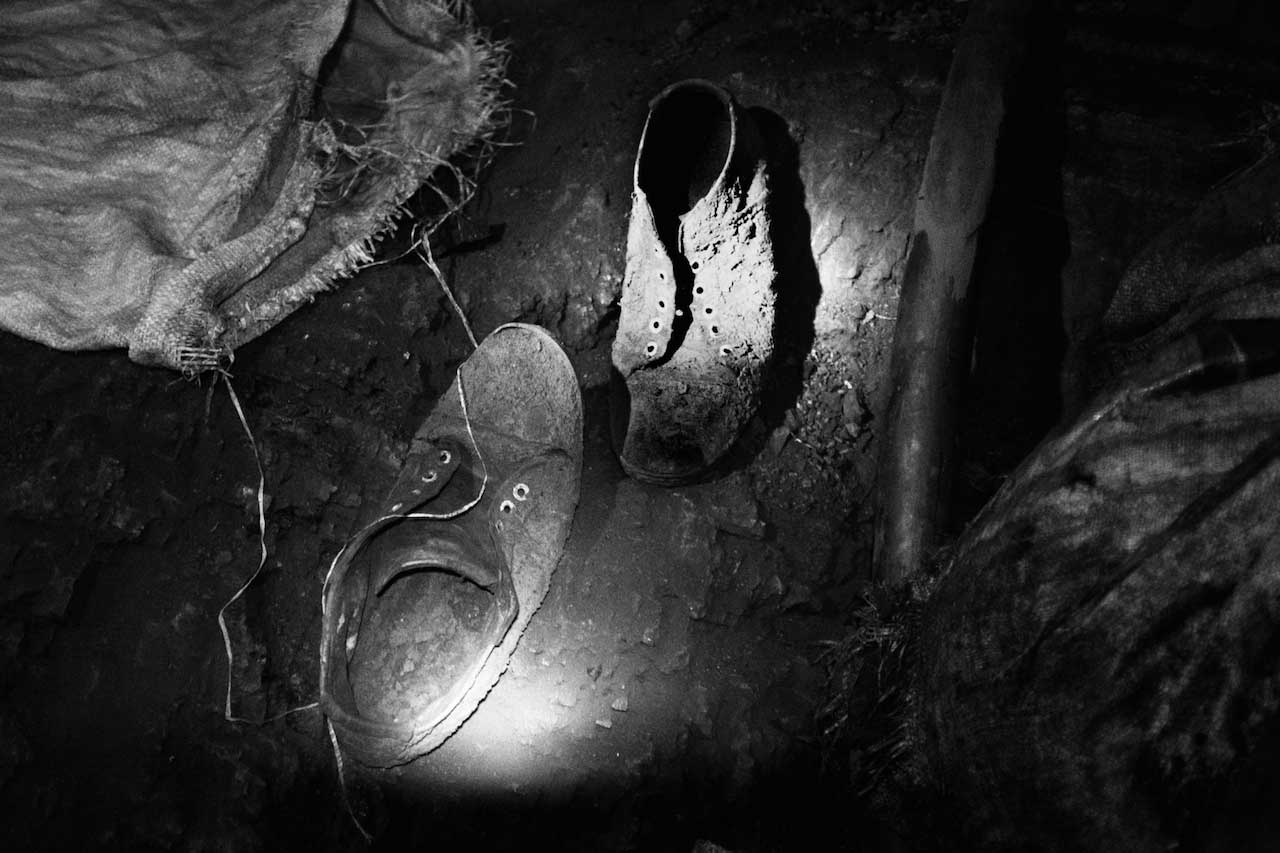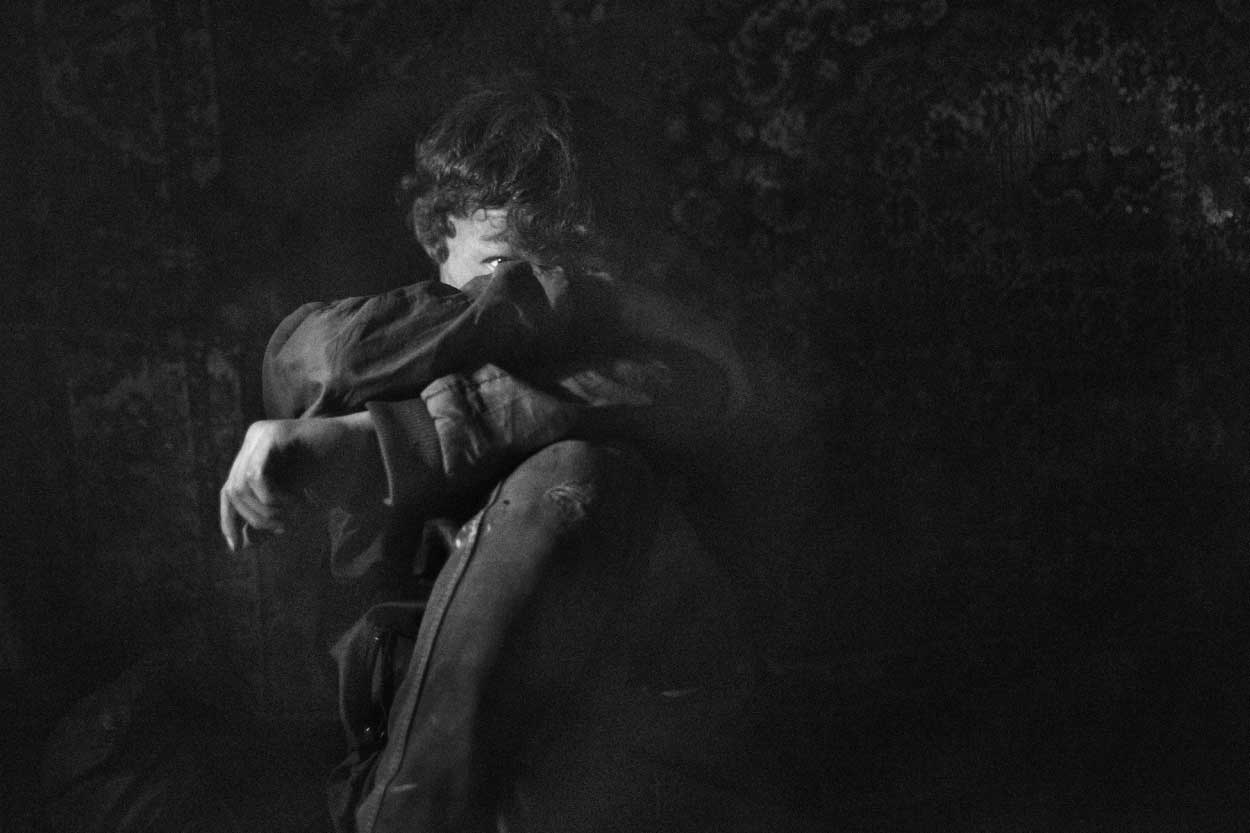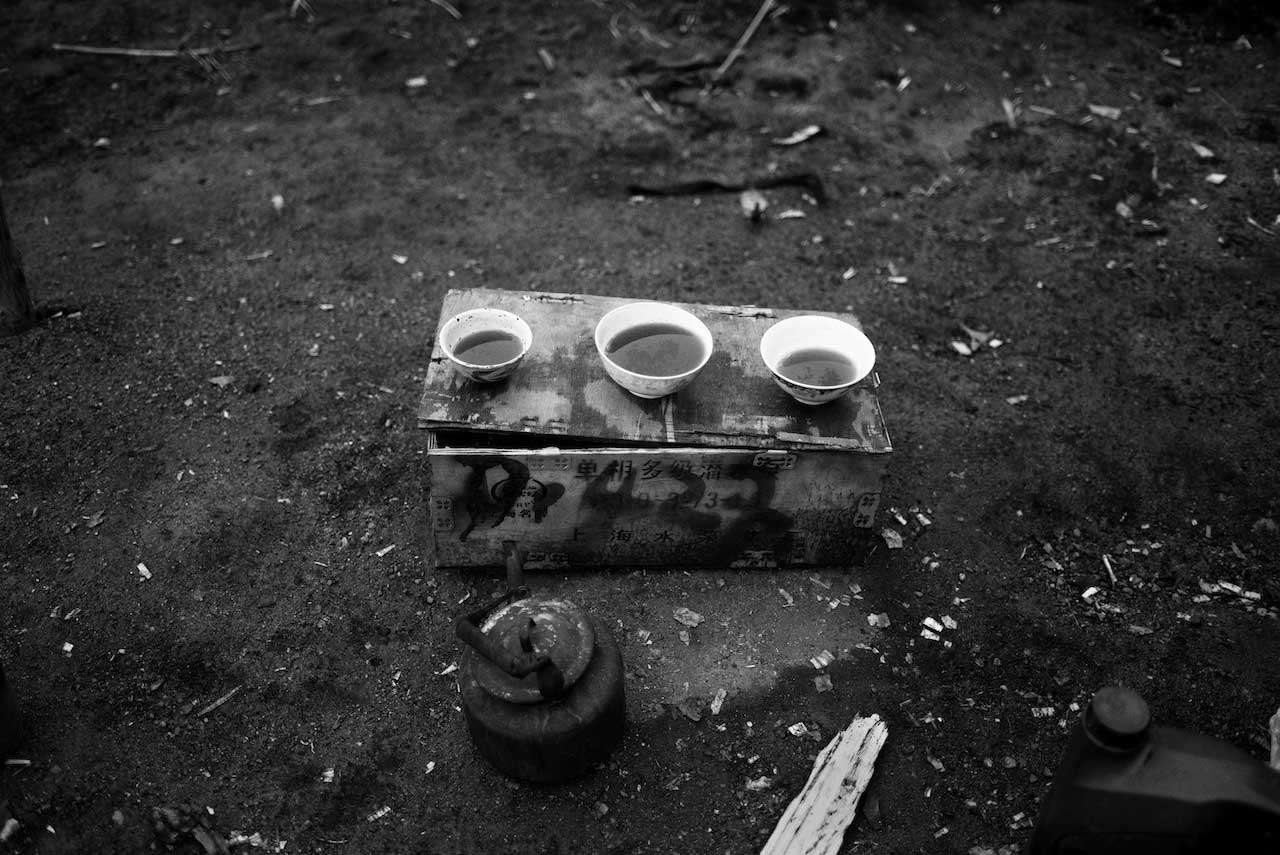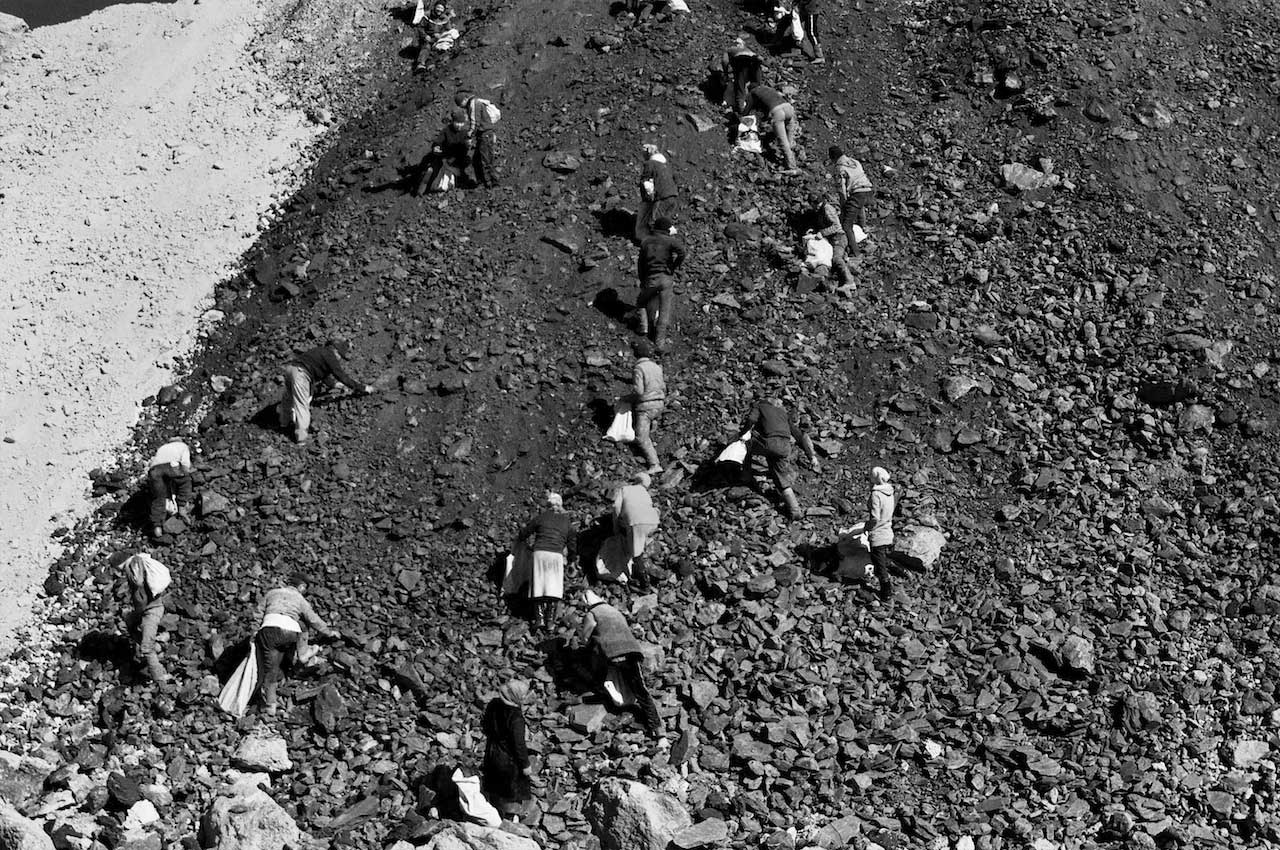Unemployment and poverty in Kyrgyzstan continue to fuel illegal coal mining, a practice which has already taken the lives of scores of victims. After the huge Soviet mines in the region closed in the 1990s, jobless men started their own small operations.
The infrastructure is lying in ruins and sadly pollute the environment. Citizens are left to their own devices in this poor mountainous nation of five million that has been in political chaos over the past few years.
Many residents of former mining towns and villages in southern Kyrgyzstan have no choice but to enter abandoned mines and extract what coal they can. To survive miners build a new “zabojka” – a poor shaft to a depth of 20 to 60 meters or they renovate old shaft left by Russians. Primitive underground corridors supported by thick wooden pegs can accommodate from four to five miners. They work about 10 hours daily equipped only with picks, worn-out helmets and headlights. Lack of proper ventilation is the most common reason of methane poisonings. When a tunnel collapses, there is little hope for rescue. But miners feel they do not have much choice because there are no jobs in a town. Locals call them Apaches for their black faces. The black market of coal dealers is exploiting the poor for labor in return for almost starvation wages. Each bag, that contains about 70 kilograms of coal, is sold for about 3 dollars. If Apaches are able to save any money after years of working in zabojkas they usally buy a popular Korean car – Daewoo Matiz and they become a taxi driver. This is a restful retirement of miners.
Today, Kyrgyzstan is one of the poorest country in the world offering little opportunity for the majority of its unemployed citizens. Local people are calling for investment in the mining sector and government does little for their communities.
About Magdalena Borowiec
Magdalena Borowiec, born 1981, based in Warsaw, Poland; sociologist, author of a solo exhibition “Where the Stars Hang Lower” in the Castle District Museum in Sandomierz (2014). Her photos have appeared on the pages of DOC! Photo Magazine, Dodho Magazine, foto8.com, FeatureShoot, Le Journal de la Photograpie, L’Oeil de la Photographie and in the Polish Fotografia quarterly. She was selected to Debuts – the group publication and exhibition of 36 most talented Polish debuting photographers (2014). [Official Website]




